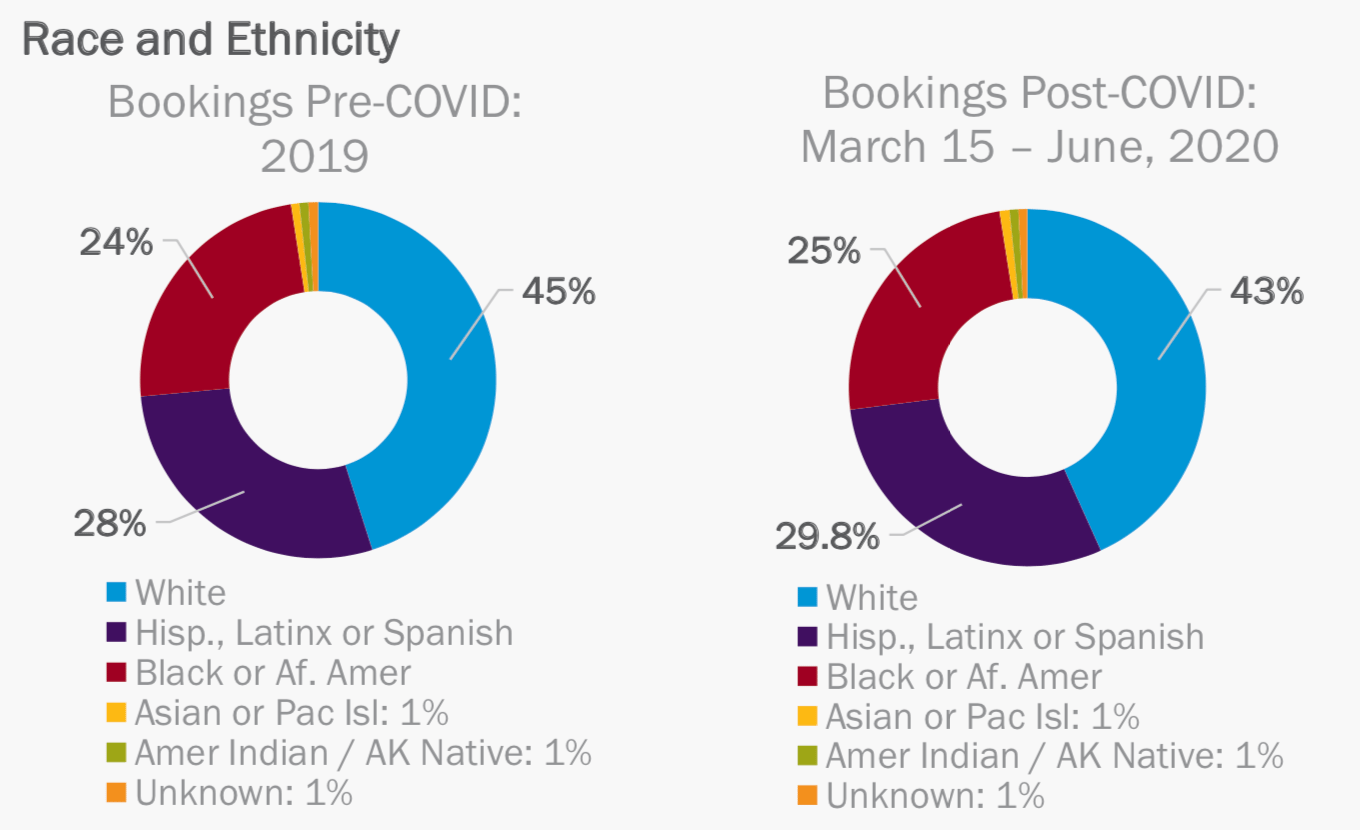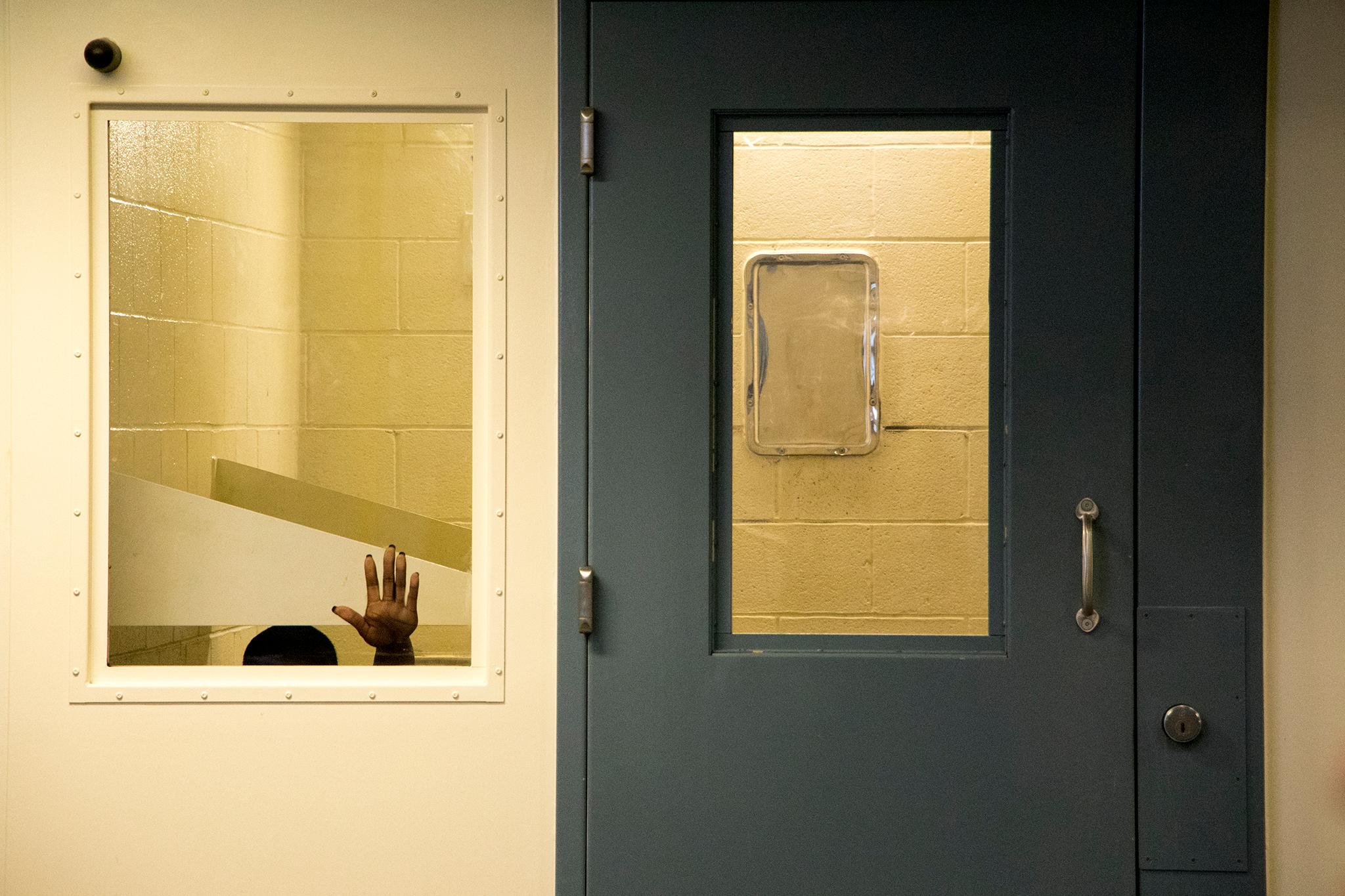As the COVID-19 pandemic and a civil rights movement against systemic racism in the criminal justice system rage in tandem, way fewer people in Denver are being arrested and placed behind bars. It's just one example of swift changes winning out over incremental ones in 2020.
And Denver's top law enforcement official, Director of Public Safety Murphy Robinson, is here for it.
"If I had the ability to decrease the jail (population) that quickly, and there were people in jail that can go out into society that quickly, my question is this -- and I continue to ask this question every day -- why did we have them in jail in the first place?" Robinson said to members of Denver City Council's safety committee Wednesday.
Robinson was nut-shelling a conversation he'd been having with the city's police department, sheriff department and district attorney's office. The decision-maker has committed to reforming the criminal justice system through a more calculated process, but on Wednesday, Robinson and new Sheriff Elias Diggins gave the public a glimpse at early returns for an unprecedented experiment that has cut the city's jail population almost in half.
To curb the spread of COVID-19, officials started freeing people at city jails after the virus hit in mid-March. Since then, Denver's jail population has dropped by 45 percent, according to a presentation given by Diggins. Low-level offenders, inmates over 60, people with less than two months on their sentence, immuno-compromised inmates and pregnant inmates were given preference for early release. State prison officials similarly reduced the number of people in their custody.
Some people who might've otherwise been behind bars are allegedly responsible for some recent violent crimes, Robinson said.
But about 30 percent of recent violent crime was committed by people who were previously jailed or imprisoned and then released, he told city council members, meaning the vast majority of formerly jailed and imprisoned residents have not gotten into trouble again.
Violent crimes like murder, rape, assault and robbery are spiking citywide, and there are plenty of other theories as to why: the pandemic, economic hardship, frustrated young people out of school, and civil unrest -- which many believe has been escalated, not neutralized, by law enforcement.
"2020 is going to get studied for years," DPD Chief Paul Pazen told Denverite earlier this month. "It's something we haven't seen."
Arrests are down 45 percent compared to last year, crime statistics show. As a result, the average number of daily bookings at city jails are down from 91 in January to 52 in July -- a 57 percent decrease.
"Chief Pazen was a great partner in this and gave his officers more discretion about what offenses were arrestable," Diggins said.
City Councilwoman Amanda Sawyer asked if the system would tighten restrictions on repeat offenders who were released and returned to jail. Robinson responded, "We have to consider the global pandemic first. When it comes to policy making, we all need to have a conversation -- to include the mayor -- on how do we then look at the criminal justice system and say what caused us to get there in the first place."
But when you break the jail population down by race and ethnicity, not much has changed.
People of color make up a disproportionate percentage of people behind bars in a city that is about 81 percent white. (It's only been a year-and-a-half since Denver made this data public.)

"What you do see in those charts is there is still an over-representation of people of color that is in our custody, which is a larger systemic issue that we as a community, as a city, as a society, need to continue to address," Diggins said.













